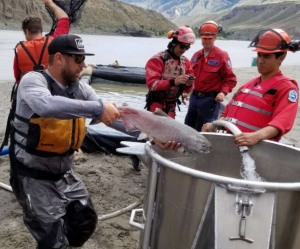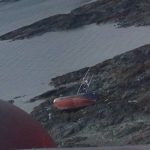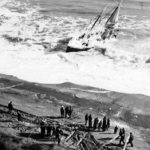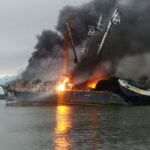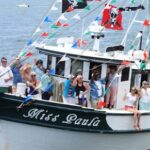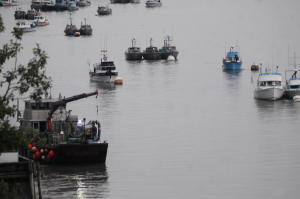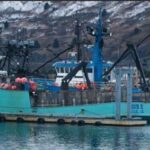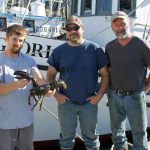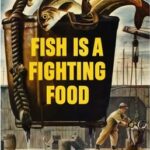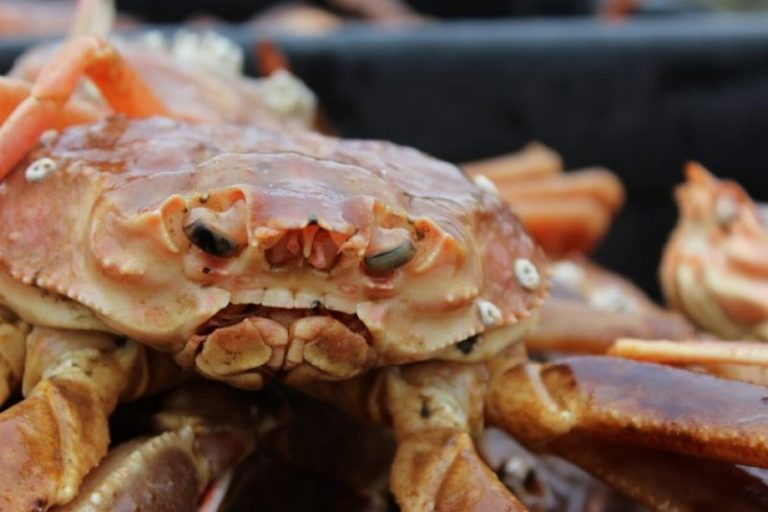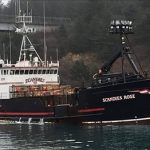Tag Archives: First Nations
25 years after the Marshall Decision, some say more must be done to uphold treaty rights
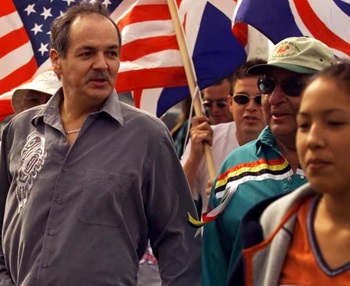 On the 25th anniversary of the Marshall Decision, a landmark court ruling that affirmed First Nations’ treaty right to fish, hunt and gather in pursuit of a moderate livelihood, some say there’s still a long way to go to properly uphold it. The Supreme Court ruling involved Donald Marshall Jr., a Mi’kmaw man from Membertou, N.S., who was arrested and charged with selling eels without a licence outside the Department of Fisheries and Oceans (DFO) regulated season in August 1993. On Sept. 17, 1999, the court ruled that Marshall was justified in doing so in pursuit of a moderate livelihood, under the Peace and Friendship Treaties signed in the 1700s. What became known as the Marshall Decision affected about three dozen Mi’kmaq and Wolastoqiyik First Nations in the Maritimes and the Gaspé region of Quebec. But the court did not clearly define “moderate livelihood,” even in a subsequent clarification. In the decades since, this has contributed to tensions between First Nations fishers, the commercial industry and DFO. more, >>CLICK TO READ<< 09:09
On the 25th anniversary of the Marshall Decision, a landmark court ruling that affirmed First Nations’ treaty right to fish, hunt and gather in pursuit of a moderate livelihood, some say there’s still a long way to go to properly uphold it. The Supreme Court ruling involved Donald Marshall Jr., a Mi’kmaw man from Membertou, N.S., who was arrested and charged with selling eels without a licence outside the Department of Fisheries and Oceans (DFO) regulated season in August 1993. On Sept. 17, 1999, the court ruled that Marshall was justified in doing so in pursuit of a moderate livelihood, under the Peace and Friendship Treaties signed in the 1700s. What became known as the Marshall Decision affected about three dozen Mi’kmaq and Wolastoqiyik First Nations in the Maritimes and the Gaspé region of Quebec. But the court did not clearly define “moderate livelihood,” even in a subsequent clarification. In the decades since, this has contributed to tensions between First Nations fishers, the commercial industry and DFO. more, >>CLICK TO READ<< 09:09
Canada to ban open-net pen salmon farming in British Columbia
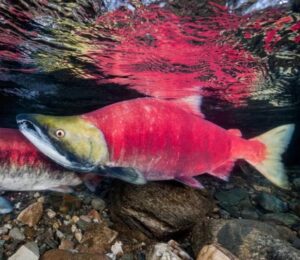 “Today, we are delivering on that promise and taking an important step in Canada’s path towards salmon and environmental conservation, sustainable aquaculture production, and clean technology,” said Jonathan Wilkinson, natural resources minister. There are dozens of the farms in British Columbia. More than half of wild salmon stock populations are declining in the province’s waters, according to the Pacific Salmon Foundation. Opinion polls have shown a majority of residents in British Columbia support ending open-net salmon farming, while more than 120 First Nations in the province have shown support for land-based closed containment fish farms. more, >>CLICK TO READ<< 09:27
“Today, we are delivering on that promise and taking an important step in Canada’s path towards salmon and environmental conservation, sustainable aquaculture production, and clean technology,” said Jonathan Wilkinson, natural resources minister. There are dozens of the farms in British Columbia. More than half of wild salmon stock populations are declining in the province’s waters, according to the Pacific Salmon Foundation. Opinion polls have shown a majority of residents in British Columbia support ending open-net salmon farming, while more than 120 First Nations in the province have shown support for land-based closed containment fish farms. more, >>CLICK TO READ<< 09:27
You’re Young and Want to Make It Fishing? Good Luck
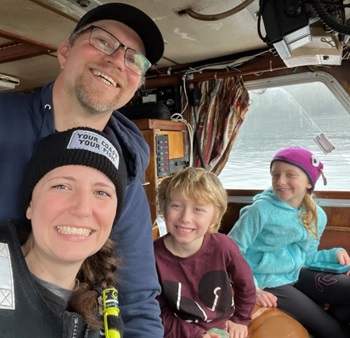 Duncan Cameron is a fisherman, like his dad and his dad’s dad before him. They count themselves among the scores of families who have made their livings on the water, pulling riches from the deep. But today, Cameron says young fishers like him are being priced out. Cameron is part of a group of fishers, conservationists and politicians who say independent owner-operators like himself are increasingly competing with big money to get a finite number of government licenses and quota they need to fish. Today, some of those licenses are worth hundreds of thousands or even more than a million dollars, something Cameron said has allowed major corporations to control a growing stake in a public resource. photos, more, >>click to read<< 07:27
Duncan Cameron is a fisherman, like his dad and his dad’s dad before him. They count themselves among the scores of families who have made their livings on the water, pulling riches from the deep. But today, Cameron says young fishers like him are being priced out. Cameron is part of a group of fishers, conservationists and politicians who say independent owner-operators like himself are increasingly competing with big money to get a finite number of government licenses and quota they need to fish. Today, some of those licenses are worth hundreds of thousands or even more than a million dollars, something Cameron said has allowed major corporations to control a growing stake in a public resource. photos, more, >>click to read<< 07:27
Put rules in writing to fix Maritime elver fishery’s enforcement problem, say businesses
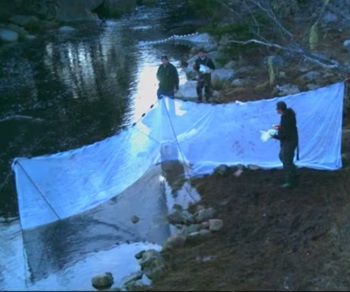 Representatives of the $45-million Maritime elver fishery are calling on the federal government to implement enforceable regulations for moderate livelihood fishing by Indigenous people. They told a Senate committee in Ottawa Thursday the failure to define or regulate moderate livelihood rights by the Department of Fisheries and Oceans (DFO) is one reason for the uncontrolled harvest of baby eels on dozens of rivers in Nova Scotia and New Brunswick. “Among these poachers are First Nations unwilling to work with DFO to access the fishery under a banner of moderate livelihood rights, backed by organized crime, specifically biker gangs and foreign smuggling networks. Our once peaceful industry has recently faced violent disruption,” said Genna Carey, a commercial licence holder speaking on behalf of the Canadian Committee for a Sustainable Eel Fishery, an industry group. more, >>click to read<< 09:29
Representatives of the $45-million Maritime elver fishery are calling on the federal government to implement enforceable regulations for moderate livelihood fishing by Indigenous people. They told a Senate committee in Ottawa Thursday the failure to define or regulate moderate livelihood rights by the Department of Fisheries and Oceans (DFO) is one reason for the uncontrolled harvest of baby eels on dozens of rivers in Nova Scotia and New Brunswick. “Among these poachers are First Nations unwilling to work with DFO to access the fishery under a banner of moderate livelihood rights, backed by organized crime, specifically biker gangs and foreign smuggling networks. Our once peaceful industry has recently faced violent disruption,” said Genna Carey, a commercial licence holder speaking on behalf of the Canadian Committee for a Sustainable Eel Fishery, an industry group. more, >>click to read<< 09:29
Wolastoqey fishers say proposed elver fishery shutdown infringes on treaty rights
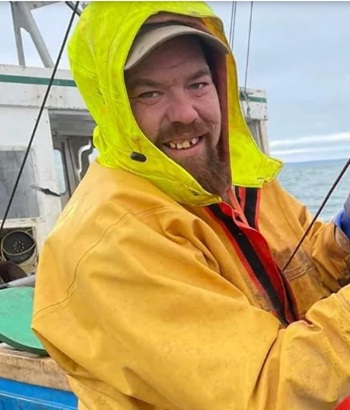 Some Wolastoqey fishers say closure of the fishery for baby eels, or elvers, this year will infringe on their treaty rights and impact their right to earn a moderate livelihood from fishing. Last week, Fisheries and Oceans Canada (DFO) issued letters to commercial licence holders that it will not renew licences ahead of the elver season that typically starts in late March. DFO shut down the elver fishery in New Brunswick and Nova Scotia last April because of conservation and safety concerns, after reports of violence and overfishing by unauthorized harvesters. Tyler Sabattis, a lobster and scallop fisherman, said he got into elver fishing last year to earn extra income for his family and community in Bilijk (Kingsclear First Nation), near Fredericton. more, >>click to read<< 09:34
Some Wolastoqey fishers say closure of the fishery for baby eels, or elvers, this year will infringe on their treaty rights and impact their right to earn a moderate livelihood from fishing. Last week, Fisheries and Oceans Canada (DFO) issued letters to commercial licence holders that it will not renew licences ahead of the elver season that typically starts in late March. DFO shut down the elver fishery in New Brunswick and Nova Scotia last April because of conservation and safety concerns, after reports of violence and overfishing by unauthorized harvesters. Tyler Sabattis, a lobster and scallop fisherman, said he got into elver fishing last year to earn extra income for his family and community in Bilijk (Kingsclear First Nation), near Fredericton. more, >>click to read<< 09:34
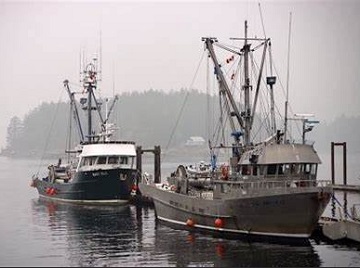
Fish fight over West Coast licences and quota resurfaces at federal committee
A parliamentary committee investigating whether corporations and foreign owners have a stranglehold on Canadian fisheries is experiencing a serious case of deja vu. Witnesses speaking about the dire straits faced by commercial fish harvesters and coastal communities on the West Coast are raising the same issues first presented to the Standing Committee of Fisheries and Oceans (FOPO) starting in 2018.Independent operators, First Nations and young fishers are being squeezed out by skyrocketing prices for commercial fishing licences and quota, a set share of the allowable catch, witnesses told the committee at ongoing meetings starting May 8. >click to read< 15:23
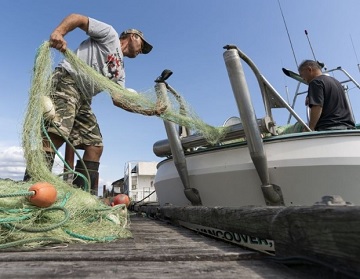
Poor Fraser River sockeye run spells end of the south coast salmon fleet
B.C. commercial fishermen are now forced to resign themselves to the reality that they will be shut out of the Fraser River sockeye fishery for the fourth year in a row, and for some that means the end of the road. “I think this is pretty much the end of the south coast salmon fleet,” said Dawn Webb, an organizer for the UFAWU-Unifor fisherman’s union. Earlier in the season, fairly strong returns of sockeye for the Skeena River, Barkley Sound and early Stuart Fraser River sockeye seemed to bode well for a healthy enough return to allow for a commercial opening this year. This is, after all, supposed to be a dominant year for Fraser River sockeye. >click to read< 07:34
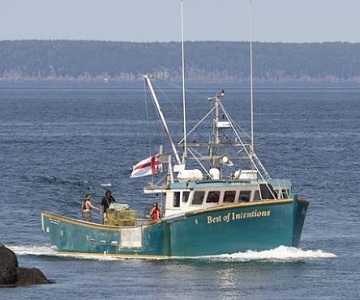
Senate report says government must implement rights-based Indigenous fisheries
A new report from the Senate is calling on the federal government to implement Mi’kmaq, Wolastoqiyik and Peskotomuhkati rights-based fisheries on Canada’s East Coast and overhaul its approach to negotiations. One of the report’s 10 recommendations is that discussions with First Nations be immediately transferred to Crown-Indigenous Relations from the Department of Fisheries and Oceans, which is something Indigenous communities have been calling for. >click to read< 15:45
First Nations shouldn’t have to negotiate with Fisheries and Oceans, committee says – Key to the proposed plan is to sideline DFO and leave it to the Department of Crown-Indigenous Relations and Northern Affairs to negotiate rights-based fishing agreements. DFO could act as advisers. “As long as you both have First Nations fisheries and non-First Nations fisheries under DFO, it’s never going to work,” >click to read<
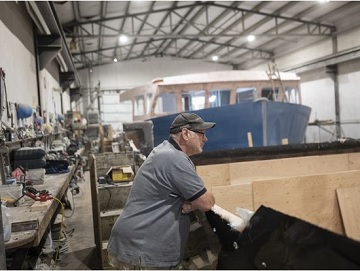
Politics: Lobster dispute, frustration with Ottawa could turn the tide on the Liberals in Nova Scotia
“Trudeau had the support of the First Nations in the last election. Not anymore. We’re voting NDP,” In rural Nova Scotia ridings such as South Shore-St. Margarets, where the fishery is a major employer, federal Fisheries Minister Bernadette Jordan is now fighting to keep her job,,, It’s just past the lunch break inside the main assembly shop at Yarmouth Boat Works, These $1.2-million state-of-the-art vessels, with kitchens, sleeping quarters, flat-screen TVs and showers, are meant to venture far out into the ocean and carry thousands of pounds of lobster back to land. Owner Steve Gee says while demand for new boats has slowed, finding skilled workers is hard, despite a good fibreglass technician getting $28 an hour, a decent wage in Yarmouth County. “I need 23 workers, but three showed up today,” he said. “Our latest job posting had 300 applicants, and not one of them was in Canada.” >click to read< 11:31

Scientists, First Nations team up in fresh attempt to revive struggling B.C. herring stocks
For decades, the fish were viewed as a virtually inexhaustible resource. They were canned, frozen, used as fertilizer, and even rendered into slippery goo to grease logs being skidded out of the forest. But the once coastal-wide bonanza is fizzling out. This year, most of the waters off B.C. were closed to commercial herring boats, with the only quota being allowed in the Strait of Georgia, along Canada’s southwest coast. The first collapse of the stocks happened in the 1960s, due to overfishing. They were allowed to recover but have had ups and downs in recent decades. The herring fishery in Eastern Canada has also been facing tough times. >click to read< 13:48

Fisheries Minister Jordan: A new path for First Nations to fish in pursuit of a moderate livelihood
We have never stopped working with First Nations to reach agreements and implement their right to a moderate livelihood. That is why effective this season, we will introduce a new path for First Nations to fish in pursuit of a moderate livelihood, one that addresses much of the feedback we’ve heard over the past year. This plan will support individuals, their families, and their communities. It’s a path that is flexible, adaptable, and based on three key principles: implementation of First Nations Treaty rights, conservation and sustainability of fish stocks, and transparent and stable management of the fishery. >click to read< 21:53
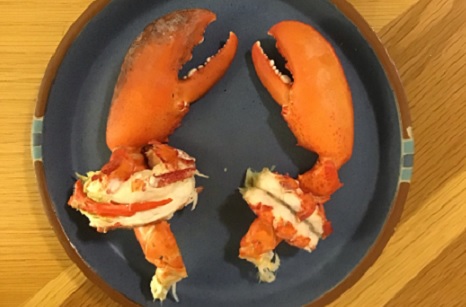
Opinion: The Reason for No Season – Jim O’Connell
These are 2 females. The black shelled female on the left did not shed this year for the first time skipping the yearly shed. It now has eggs. It was a pound and a half and does not have to shed every year anymore.,,, Canada is not protecting the reproductive potential with it’s seasonal rules. They force the lobstermen to throw the baby out with the bath water. Lobstermen who are trying to make a living for the whole year in two months are targeted on the most important lobster for reproduction.,,, The First Nations have publicly come out and said they want to improve the regulations on the present method for sustainability. Jim O’Connell, >click to read< 15:36

‘We won’: Clearwater Seafoods deal gives Mi’kmaq control of lucrative ocean stretch
Early this week, leaders of the Membertou and Miawpukek First Nations, both of which are Mi’kmaq communities, reached an agreement to buy Nova Scotia-based Clearwater Seafoods in a deal worth C$1bn (£580m). Heralded as the “single largest investment in the seafood industry by any Indigenous group in Canada”, the landmark deal comes at a critical moment for Indigenous communities in the region, as tensions remain high over their treatied fishing rights. >click to read< 15:48
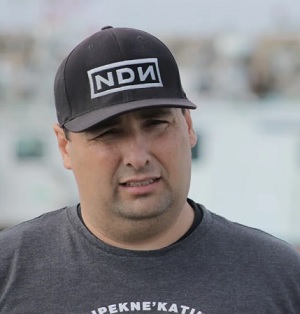
“Mixed Feelings”: Sipekne’katik chief says discussions with commercial fishers in Nova Scotia can wait
Responding to Ottawa’s decision to name Allister Surette as a facilitator in the dispute, Sipekne’katik Chief Mike Sack said he had “mixed feelings.” He said that while he was not fundamentally opposed to participating in the process, “right now, we’re not worried about that.” Surette, president and vice-chancellor of Université Sainte-Anne who has experience as a facilitator in fishery disputes, was named to the role on Friday. Surette said his work might lead to a resolution in the fishery dispute,,, Sack, however, maintained that the resolution lies in his band’s talks with the federal government, not with commercial fishers. >click to read< 16:00
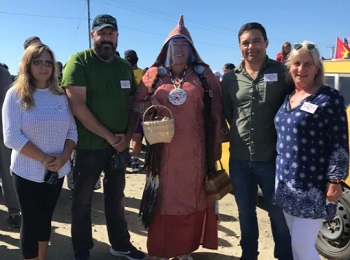
Peaceful protest, peace offering in disputed First Nations lobster fishery
There were peaceful protests Friday in Nova Scotia by commercial fishermen, following a symbolic gesture of peace the day before between some commercial fishermen and the First Nations band at the centre of a disputed lobster fishery. Gordon Beaton, the president of Local 4 of the Maritime Fishermen’s Union, said fishermen are worried where the fishery is headed.,, “We don’t argue the treaty,” said Beaton. “We’re not arguing the fishing rights that they have. They have a right to First Nations fishery, but we want the right to be executed in a way that’s sustainable for everybody.” >click to read< 16:09
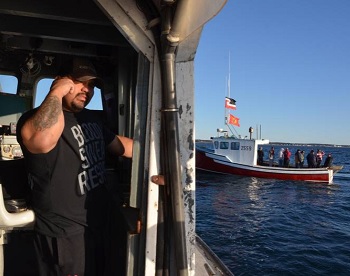
Federal inaction drives lobster feud
A Coast Guard cutter and two helicopters (one RCMP, one DFO) provided little more than backdrop scenery to the boiling tensions on the Acadian shore Monday. Both the First Nations encamped behind a barricade at the Saulnierville Wharf and the predominantly Acadian local fishermen with their own roadblock at the Meteghan wharf 14 kilometres away called on the federal authorities to uphold the law. But whose law do they uphold? Successive federal fisheries ministers have kicked the issue down the election cycle by providing commercial licenses to First Nations bands without negotiating the Supreme Court of Canada acknowledged right of individual Mi’kmaq to make a moderate livelihood off of natural resources. The vacuum left by their inaction is being filled with threats, flares and rubber bullets. >click to read< 10:29
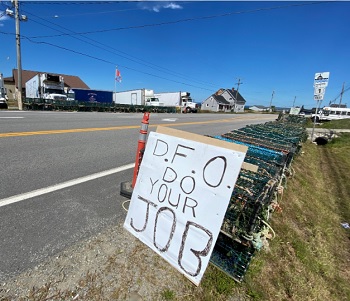
Quiet seafood truck protest: DFO urged to crack down on illegal out of season lobster fishing
The owner of a seafood company that has trucks parked at the DFO detachment declined an interview and wouldn’t comment about the protest or who organized it. Asked why the trucks are there the company owner simply said, “DFO knows.” The trucks were first parked at the DFO detachment on Aug. 27, the same day hundreds of commercial lobster fishermen protested outside of federal Fisheries Minister Bernadette Jordan’s office in Bridgewater demanding DFO provide enforcement. As they have in previous summers, fishermen have been raising concerns over what they say is out-of-season commercial lobster harvesting taking place. They say commercial activity is happening under the guise of the First Nations fishery and accuse some fishers of abusing the intent of that fishery. photos, >click to read< 20:38
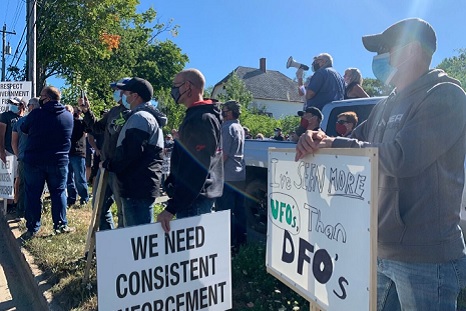
Peaceful Protest: Hundreds of fishermen protest outside Fisheries and Oceans Minister Jordan’s office
Several hundred fishermen protested Thursday in Bridgewater, N.S., outside the constituency office of Fisheries and Oceans Minister Bernadette Jordan, demanding her department stop out-of-season commercial lobster harvesting and sales commercial lobster harvesting and sales by First Nations in Nova Scotia. “We are tired of being ignored over and over again,” organizer Colin Sproul of the Bay of Fundy Inshore Fishermen’s Association told the crowd through a bullhorn from the back of a pickup truck. The protest is over what fishermen say is a blatant abuse of a First Nations communal lobster fishery underway in St. Marys Bay. >click to read< 17:06
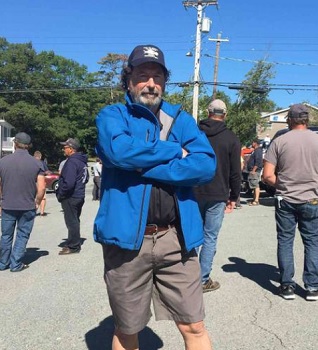 Discontent arrives at federal fisheries minister’s doorstep – Roger LeBlanc, on Thursday sporting a Maritime Fisherman’s Union cap and a jacket bearing the name of Beausoleil the Third, his 50-foot lobster boat ,is used to rising early. He didn’t want to miss the big rally in front of the office of Bernadette Jordan,,, >click to read<
Discontent arrives at federal fisheries minister’s doorstep – Roger LeBlanc, on Thursday sporting a Maritime Fisherman’s Union cap and a jacket bearing the name of Beausoleil the Third, his 50-foot lobster boat ,is used to rising early. He didn’t want to miss the big rally in front of the office of Bernadette Jordan,,, >click to read<

Consultation lacking on decision to reactivate licenses for Indigenous communities
The reactivation of dormant lobster fishing licences by the federal government has prompted a terse statement from the P.E.I. Fishermen’s Association (PEIFA) and the Maritime Fishermen’s Union (MFU). The two organizations say they were left out of consultation over the reactivation of 10 lobster licences by the Department of Fisheries and Oceans (DFO) in the Lobster Fishing Area (LFA) 25, located on the western end of the Northumberland Strait between P.E.I. and New Brunswick.,,, The statement said fishermen were “frustrated” by the lack of consultation prior to the decision and called for the federal government to bring together Indigenous and non-Indigenous fishermen’s organizations. >click to read< 09:54
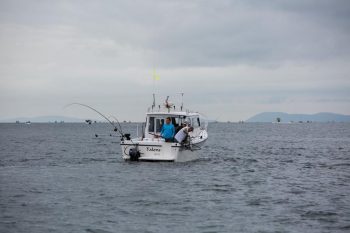
First Nations along Fraser River want sport fishing closed to save at risk species
So far this season, Guerin said Fisheries and Oceans Canada (known as DFO) limited Musqueam fishers to a few hundred chinook from the river, nowhere near enough to feed the nation’s 1,300 members let alone supply funerals and other community events like ceremonies and feasts. “I’ve got elders this year, this may be their last fish, and I can’t give it to them,” he said. “That hurts.”,,, Musqueam Chief Wayne Sparrow said they want to be part of the conservation efforts, but First Nations’ needs take priority over recreational fishing according to a 1990 Supreme Court ruling. That means the sport fishery should bear the brunt of any restrictions when there are concerns about the state of salmon populations. >click to read< 08:50
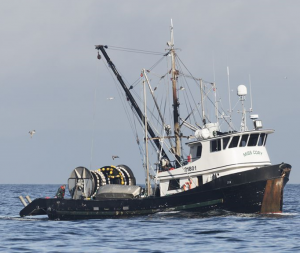
Opinion: Federal fisheries committee challenges B.C. licensing policies
With a sole focus on protecting fish stocks, since the mid-1990s Fisheries and Oceans Canada has largely ignored the economic well-being of B.C.’s commercial fish harvesters and coastal communities. Something really extraordinary just happened. Someone in the government of Canada started paying attention to the B.C. fishery. Not just to the fish in the water, but to the 2,400 small- and medium-sized businesses that employ more than 5,000 fish harvesters to deliver high-value seafood products to local and global markets and sustain B.C.’s coastal communities and First Nations. >click to read< 21:52
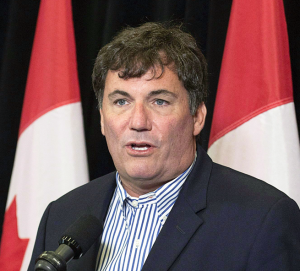
New criticism surrounds federal decision to break Arctic surf clam monopoly
One month after the federal fisheries minister announced a new licence for an important clam fishery would be awarded to a partnership of Indigenous groups from across Atlantic Canada, the government is facing fresh criticism over how it awarded the licence, and for the Liberals’ perceived ties to the winning bidder. The decision to award one-quarter of the Arctic surf clam quota to a partnership that included Indigenous communities was intended to further reconciliation by helping First Nations gain a foothold in a lucrative market and to break the monopoly on Arctic surf clams that has been held by Halifax-based Clearwater Seafoods. >click to read<10:10

FISH-NL questions whether Ottawa purposely is out to eliminate inshore fishery and outports along with it
The Federation of Independent Sea Harvesters of Newfoundland and Labrador (FISH-NL) says Ottawa’s decision to award a new Arctic surf clam licence to East Coast aboriginal groups amounts to Indigenous reconciliation on the backs of inshore harvesters and rural communities.,, “Our inshore harvesters and rural communities should be at the head of the line for any new quotas,” says Ryan Cleary, President of FISH-NL. “Our harvesters are starving for fish, and the feds are taking from the few healthy stocks we have left, and carving them up for groups with no connection to the resource. That’s just wrong.” >click to read< 12:07
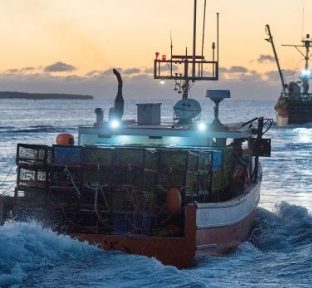
Indigenous fishermen hope to be arrested, trigger court case as Nova Scotia lobster season kicks off
As one of the most lucrative fisheries in Canada prepares for opening day, some Mi’kmaq in Nova Scotia are trying to trigger a court battle over Indigenous fishing, hoping it will see them win a greater share of the thriving lobster business. And they are daring the Department of Fisheries and Oceans to arrest them. One of them is Cheryl Maloney, an activist, law school graduate and mother of four boys. She wants her family to be able to earn the “moderate livelihood” she says the Supreme Court of Canada ruled they are entitled to in 1999. click here to read the story 09:19
Yukon kings are on the rebound, Canadians, however, are fishing less
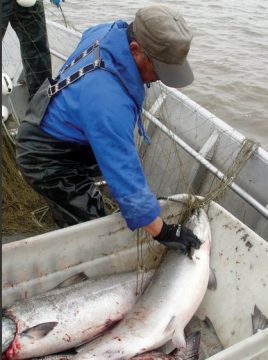 Yukon River chinook stocks are on the upswing, according to a season summary, though not everybody is fishing for the surplus. Holly Carroll, the area management biologist for the Yukon River section of the Alaska Department of Fish and Game, said the painful restrictions on subsistence harvests have paid off. “We wouldn’t have made escapement goals at all if we hadn’t restricted harvest,” Carroll said. “We have to restrict the harvest just to meet the bare minimum for sustaining the run. The restrictions in the subsistence fishery have helped to build the numbers back up.” With 176,895 fish past the sonar counter at Pilot Station, the 2016 chinook run has nosed back up to the most recent 20-year average of 178,000. Along with total run numbers, the amount of chinook into Canada is improving. However, First Nations communities and Canada fisheries managers have different ideas than Alaska, and much of the run sent over the border went unharvested. A major goal of ADFG Yukon River management aims to send between 42,500 and 55,000 chinook salmon over the Canadian border at Eagle as per the Pacific Salmon Treaty. Read the story here 15:54
Yukon River chinook stocks are on the upswing, according to a season summary, though not everybody is fishing for the surplus. Holly Carroll, the area management biologist for the Yukon River section of the Alaska Department of Fish and Game, said the painful restrictions on subsistence harvests have paid off. “We wouldn’t have made escapement goals at all if we hadn’t restricted harvest,” Carroll said. “We have to restrict the harvest just to meet the bare minimum for sustaining the run. The restrictions in the subsistence fishery have helped to build the numbers back up.” With 176,895 fish past the sonar counter at Pilot Station, the 2016 chinook run has nosed back up to the most recent 20-year average of 178,000. Along with total run numbers, the amount of chinook into Canada is improving. However, First Nations communities and Canada fisheries managers have different ideas than Alaska, and much of the run sent over the border went unharvested. A major goal of ADFG Yukon River management aims to send between 42,500 and 55,000 chinook salmon over the Canadian border at Eagle as per the Pacific Salmon Treaty. Read the story here 15:54
MV Leviathan II tragedy: Official rescue role for First Nations urged
 A marine safety expert says coastal First Nations should be given an official role in the province’s search and rescue services. Advocates say the capsizing of whale-watching boat, the MV Leviathan II, off the Tofino coast and the resulting rescue shows how crucial First Nations communities are in emergencies on the water. Two Ahousaht fishermen were the only people who spotted a rocket flare shot off the capsized boat and rushed to the scene, triggering a rescue effort that pulled 21 survivors from frigid B.C. waters. Read the rest here 09:12
A marine safety expert says coastal First Nations should be given an official role in the province’s search and rescue services. Advocates say the capsizing of whale-watching boat, the MV Leviathan II, off the Tofino coast and the resulting rescue shows how crucial First Nations communities are in emergencies on the water. Two Ahousaht fishermen were the only people who spotted a rocket flare shot off the capsized boat and rushed to the scene, triggering a rescue effort that pulled 21 survivors from frigid B.C. waters. Read the rest here 09:12
Opposition to the Proposed LNG Project on Lelu Island
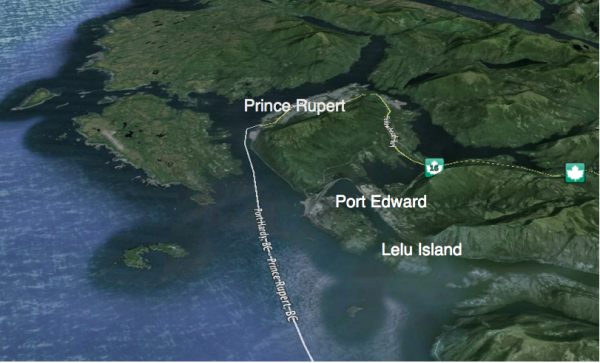 The study from SFU found that “The Skeena estuary funnels hundreds of millions of juvenile salmon through the transition from freshwater to marine habitats each year … (and) proposed development in these areas will threaten the fisheries that depend on these fishes.” Read the rest here 19:45
The study from SFU found that “The Skeena estuary funnels hundreds of millions of juvenile salmon through the transition from freshwater to marine habitats each year … (and) proposed development in these areas will threaten the fisheries that depend on these fishes.” Read the rest here 19:45
British Columbia: Tensions rise as First Nations demand Central Coast herring fishery be called off
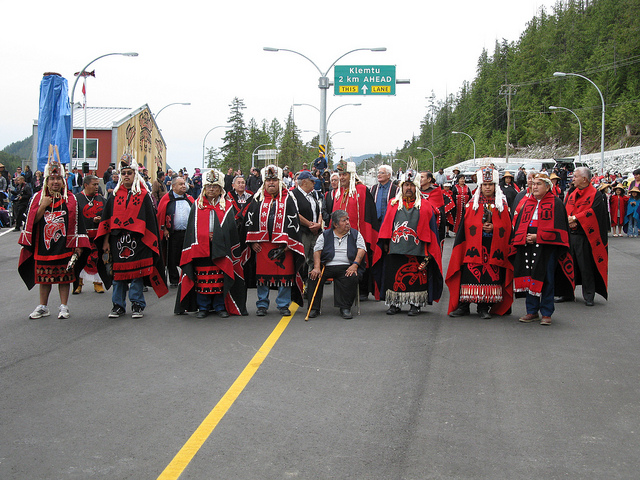 Mr. Neasloss said there are six commercial gillnet boats tied up in Kitasu Bay, waiting for the opening, and more boats are expected to arrive soon. The band planned to deliver letters to the fishing boat crews Monday, asking them not to fish. “Our first approach is to ask them to leave. If they don’t, it sounds like all Central Coast communities will be converging on Kitasu Bay,” said Mr. Neasloss. Read more here globeandmail 12:14
Mr. Neasloss said there are six commercial gillnet boats tied up in Kitasu Bay, waiting for the opening, and more boats are expected to arrive soon. The band planned to deliver letters to the fishing boat crews Monday, asking them not to fish. “Our first approach is to ask them to leave. If they don’t, it sounds like all Central Coast communities will be converging on Kitasu Bay,” said Mr. Neasloss. Read more here globeandmail 12:14






